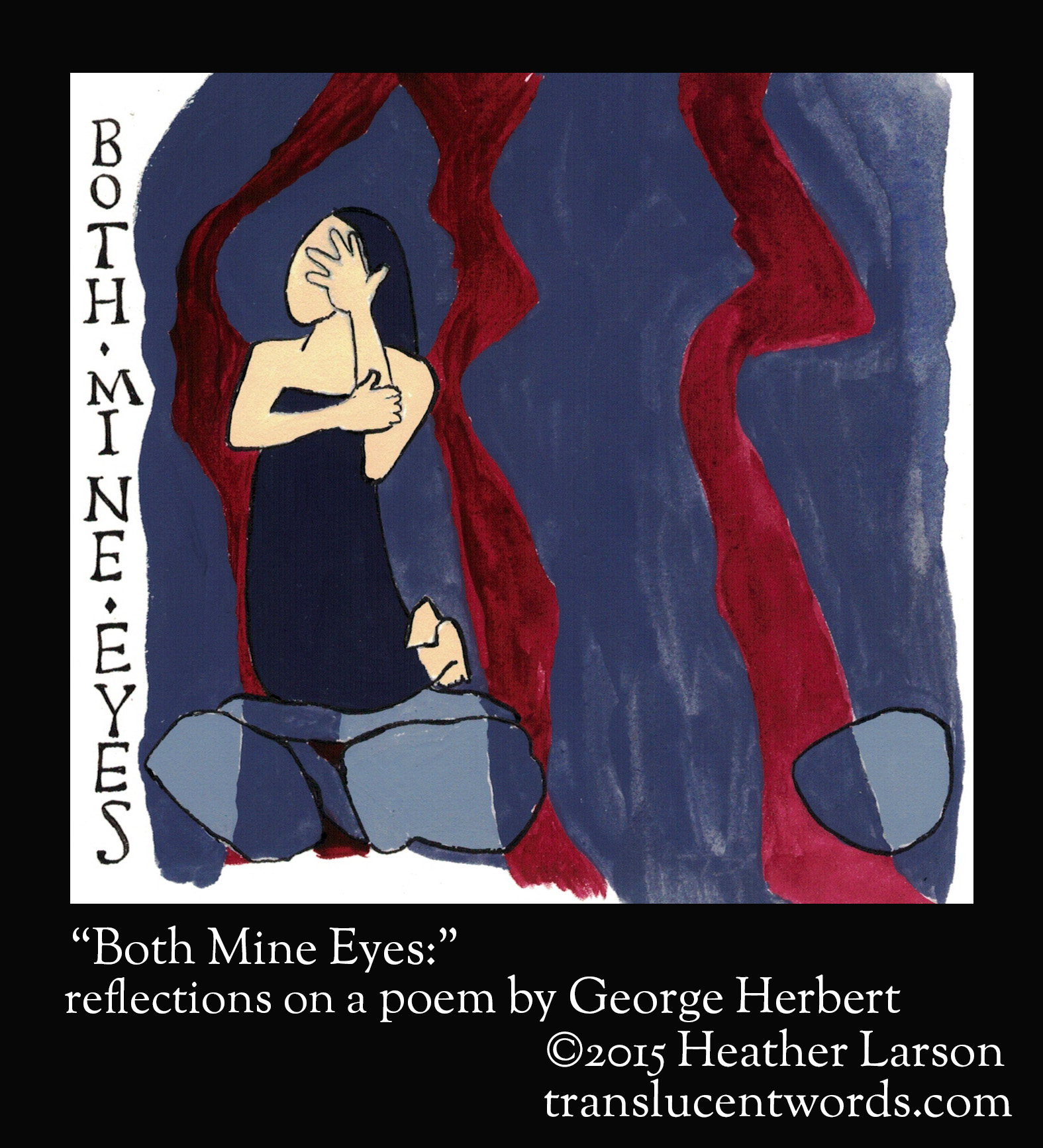
You had a good plan. A lovely plan. If God had just gone along with it, you would have given him the praise, and the world would have been a better place. But omnipotent God somehow let everything go wrong, and now it’s an utter mess. Do you shout at the sky? The psalmists certainly do. Most of us at least whine at God a little.
But what if you suddenly remembered that you had promised to see the world from God’s point of view? What if, carried away in a deep moment of prayer, you had voluntarily given up your right to judge what was and was not a mess?
George Herbert’s poem, “Submission,” begins with this stanza:
My minde would be extreamly stirr’d
I love the fact that he manages to express his instinctive feelings without completely giving way to them, without forgetting that he has given up to God his right to “see” reality. He starts with an “if it weren’t for…” kind of statement, and lets the whine come part-way out under the cover of this negative. The sound of long “i” piles up: “mine…eyes…thine…minde…designe.” It sounds like whining, and it’s all about “I” and “eyes.”
He gives way even more to the natural thoughts of a stirred-up mind in stanza two, but in three returns to the concept that he has chosen to give up his “sight” to God and thinking this way is “stealing” it back, trampling on God’s rights.
There is a paradox in knowing that “what you see and hear depends a good deal on where you are standing: it also depends on what sort of person you are.”[1] Neurologists tell us that our perception is hugely influenced by our mental habits. So how can we change when the “reality” coming at us is shaped by and constantly reinforces the wrong thinking we have done? Perhaps by ceding our right to our “eyes,” and crying out for God’s hand.
Submission
But that thou art my wisdome, Lord,
And both mine eyes are thine,
My minde would be extreamly stirr’d
For missing my designe.
Were it not better to bestow
Some place and power on me?
Then should thy praises with me grow,
And share in my degree.
But when I thus dispute and grieve,
I do resume my sight,
And pilfring what I once did give,
Disseize thee of thy right.
How know I, if thou shouldst me raise,
That I should then raise thee?
Perhaps great places and thy praise
Do not so well agree.
Wherefore unto my gift I stand;
I will no more advise:
Onely do thou lend me a hand,
Since thou hast both mine eyes.
--George Herbert
[1] C. S. Lewis, The Magician’s Nephew

Leave a Reply